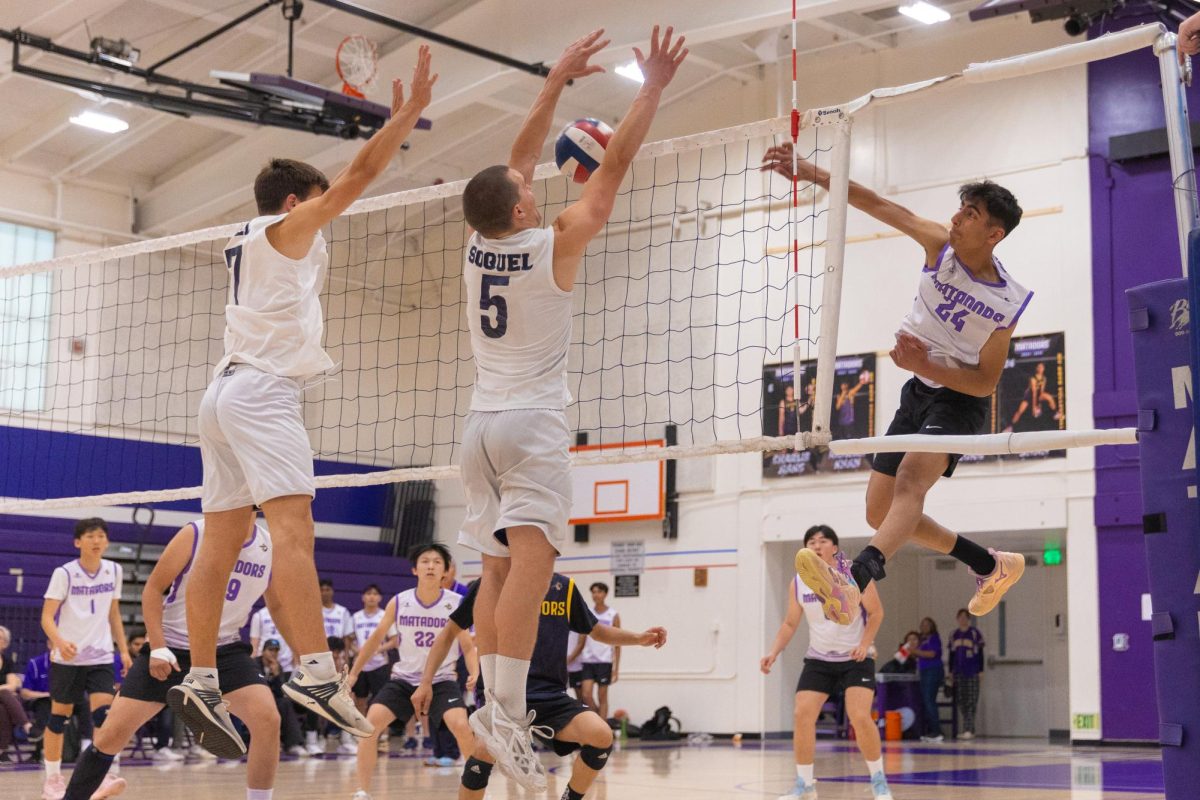Co-reported by Renee Pu. Graphic by Renee Pu. Photos by Justin Kim.
The referee saw him on the brink of losing his breath and called the match. His condition forced him to bow out, resulting in a loss for Kennedy Middle School, an ending to his goal of being undefeated and an overwhelming feeling of shame.
It was an intense moment during the match when his opponent managed to get him in a tight hold around his neck. Breathing or speaking seemed impossible.
“I couldn’t continue,” he said, recalling the experience.
For wrestler and football player senior Eric Crouch and asthmatics worldwide, being an athlete is perhaps the most impacted by asthma in its various forms of exercise and activities.

Crouch was diagnosed with exercise-induced asthma in first grade. According to the Mayo Clinic, this particular form of asthma is the narrowing of airways in the lungs triggered by exercise, to different extents. In elementary school, asthma attacks occurred regularly for him.
“It got bad enough that the staff at the principal’s office actually knew me pretty well in elementary school,” Crouch said. “I would have problems where I was just running around out in the field and then I just suddenly stop being able to breathe.”
As the years passed, his asthma attacks became less frequent. Instead of experiencing attacks caused by his everyday activities, due to his cardiovascular development, Crouch only felt the effects of the respiratory condition at times of severe athletic strain. In high school, Crouch took on football; with the brutality and hardship of the sport itself also came the discomfort and inconvenience of the equipment.
“It’s a very defined constriction around your chest,” Crouch said, “and so for me, that was a matter of, I needed to get used to breathing slightly differently, just knowing that I had less lung capacity that I could work with.”
In a survey conducted from 323 people, 29% of athletes have been diagnosed with asthma at some point in their lives, and 75% of asthmatics claim that their asthma does not drastically hamper their lifestyle. Sophomore Rythm Matharu is a part of the other 25%, as the weight of having asthma continues to manifest itself in her everyday life. She was diagnosed in the middle of seventh grade and not much has changed since then.Crouch’s asthma took an even larger toll on his wrestling abilities. Though there aren’t any legal chokeholds that result in the constriction of oxygen, and the effects of asthma on him have dwindled, Crouch still occasionally finds himself in a situation where he has trouble breathing.
“Every time I want to even try running for a short period, I have to take my inhaler,” Matharu said. “Otherwise, I can’t really do it. I can run for maybe like, half a room, and then just get extremely out of breath.”
One attack happened just last year, during a soccer match on a scorching day. The symptoms began in the middle of the game. Matharu found it difficult to breathe, found herself unable to continue. Shaking, she sought her inhaler. She ended up going to the doctor that night to conduct a breathing treatment, where she was given a strong dose of inhaler and the instruction to miss school for a couple days.
On the other hand, for junior Bryce McNeil, who was diagnosed with asthma at birth, the condition’s effects have made a smaller impact on his ability to participate in sports. His case of illness-induced asthma only affects him when he’s sick, still, however, making longer exertion while playing sports more difficult.
A cross country race in seventh grade was his first and only time experiencing an asthma attack that prevented him from finishing the race. Now, when he plays soccer, there are times when the effects are significantly worse than usual — tightening of the chest, difficulty to breathe — but his inhaler can control and mitigate its effects. However, the fact that his asthma can usually be controlled doesn’t mean it doesn’t affect him, and certainly doesn’t mean there are no mental obstacles that come with it.
“When I did cross country, it was sometimes kind of depressing,” McNeil said, “like, the one time it happens, to just not be able to finish a race.”
Although there are no direct impacts to Matharu emotionally, she acknowledges that having a somewhat extreme case of asthma has made it challenging for her to pursue numerous activities in her life.
“It’s more difficult to play sports and to do things that you want to,” Matharu said. “You constantly have to have [an inhaler] on you, because there’s the fear of getting an asthma attack.”

For these athletes, having to deal with the various extents of the chronic respiratory condition on top of everything else that comes with high school is tough. And while the condition occasionally spurs up feelings of shame, disappointment and melancholy, those diagnosed won’t let it define them, and continue their fight against asthma — whether they like it or not.
“There’s this thing in wrestling [when] you’re so proud because you’ve done something that was hard and you had never thought you could do before,” Crouch said. “When you’re asthmatic, there are moments when you can no longer push yourself any further. [It’s] that I can’t breathe, and I’m starting to see black at the edge of my eyes; this is no longer safe for me.”








